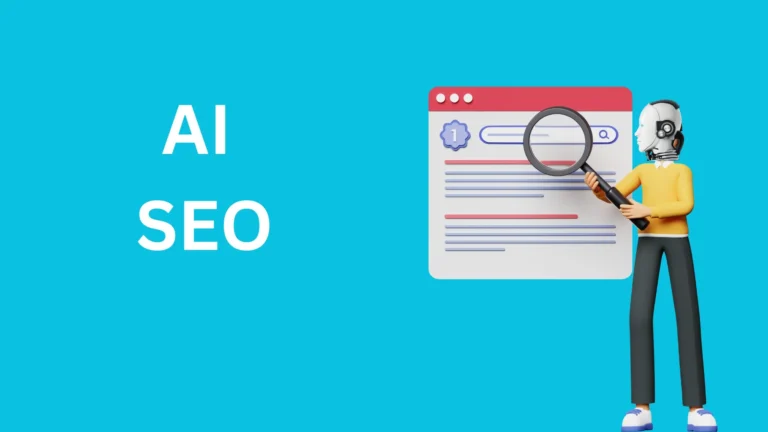What Elements Are Foundational for SEO with AI: A Complete Guide

What Elements Are Foundational for SEO with AI?
Search Engine Optimization (SEO) is changing rapidly. With the rise of Artificial Intelligence (AI), search engines no longer just match keywords — they understand context, search intent, and user behavior. This shift means you must adapt your strategy with AI-powered SEO techniques to stay ahead.
In this guide, we will explore the key elements that are foundational for SEO with AI and how you can use them to improve your rankings in both Google Search and AI search assistants like Google Gemini and ChatGPT.
TL;DR – Key Elements Foundational for SEO with AI
- Create high-quality, intent-driven content that answers real user questions.
- Add structured data and schema markup for rich snippets and AI search results.
- Build E-E-A-T (Experience, Expertise, Authoritativeness, Trustworthiness).
- Maintain strong technical SEO (Core Web Vitals, mobile-first design).
- Optimize for voice search and conversational search queries.
- Strengthen internal linking with topic clusters.
- Use multimedia with descriptive alt text to boost AI understanding.
- Leverage AI SEO tools for keyword trends and optimization.
1. Create High-Quality, Intent-Driven Content for SEO with AI
In the age of AI search, content must be more than keyword-filled paragraphs. AI-powered algorithms focus on search intent optimization, analyzing how well your content answers user questions.
How to do it:
- Write useful, well-structured content that solves the reader’s problem.
- Cover related topics and LSI keywords to give complete answers.
- Use examples, FAQs, and comparisons to increase value.
2. Use Structured Data and Schema Markup in SEO with AI
Structured data helps both search engines and AI search assistants display your content in rich snippets, voice search answers, and featured results.
How to do it:
- Add relevant schema types such as Article, FAQ, Product, or Organization.
- Test your markup with Google’s Rich Results Test to avoid errors.
- Keep data updated to match your content changes.
3. Build E-E-A-T to Improve SEO in the Age of AI
E-E-A-T (Experience, Expertise, Authoritativeness, Trustworthiness) is one of the most important AI and SEO ranking factors. Search engines prefer authoritative and credible sources.
How to do it:
- Display author bios and qualifications.
- Link to trusted sources.
- Add original data, research, or case studies for proof.
4. Optimize Technical SEO for AI Search
Without technical SEO best practices, even great content might not rank. AI-powered crawlers still depend on a clean, fast, and mobile-friendly website.
How to do it:
- Improve Core Web Vitals like load time and visual stability.
- Ensure mobile-first indexing with responsive design.
- Submit XML sitemaps for better crawling.
5. Optimize for Voice and Conversational Search
With the rise of voice assistants like Google Gemini, Siri, and Alexa, more searches are in natural language. Optimizing for conversational search queries can help you appear in AI-generated results.
How to do it:
- Use question-based headings like “What is…” or “How to…”.
- Include long-tail keywords that match how people speak.
- Add FAQ sections to directly answer common spoken queries.
6. Strengthen Internal Linking for Better SEO with AI
Internal linking helps AI understand your site structure and topical authority. A strong internal linking strategy boosts your visibility in AI-powered search.
How to do it:
- Link related articles and product pages using descriptive anchor text.
- Build topic clusters with pillar pages and supporting content.
- Keep navigation logical for both users and search bots.
7. Add Multimedia and Descriptive Alt Text for AI-Friendly SEO
AI can understand and interpret images, videos, and infographics. Adding multimedia with descriptive alt text improves engagement and relevance.
How to do it:
- Use detailed alt text describing what’s in each image.
- Provide transcripts for videos and podcasts.
- Include infographics for complex topics.
8. Use AI SEO Tools to Enhance Optimization
Leverage AI-powered SEO tools to find keyword opportunities, analyze competitors, and track performance.
Recommended tools:
- SurferSEO – for content optimization.
- Clearscope – for semantic keyword suggestions.
- SEMrush AI – for competitor research and trend tracking.
Final Thoughts on SEO with AI
The future of SEO is powered by AI. By focusing on intent-driven content, structured data, E-E-A-T, and technical performance, you can create a strong SEO foundation that works with AI search engines — not against them.
When you apply these elements, you optimize not only for algorithms but also for real people — which is the ultimate goal of any SEO strategy.

With 5+ years of SEO experience, I’m passionate about helping others boost their online presence. I share actionable SEO tips for everyone—from beginners to experts.
